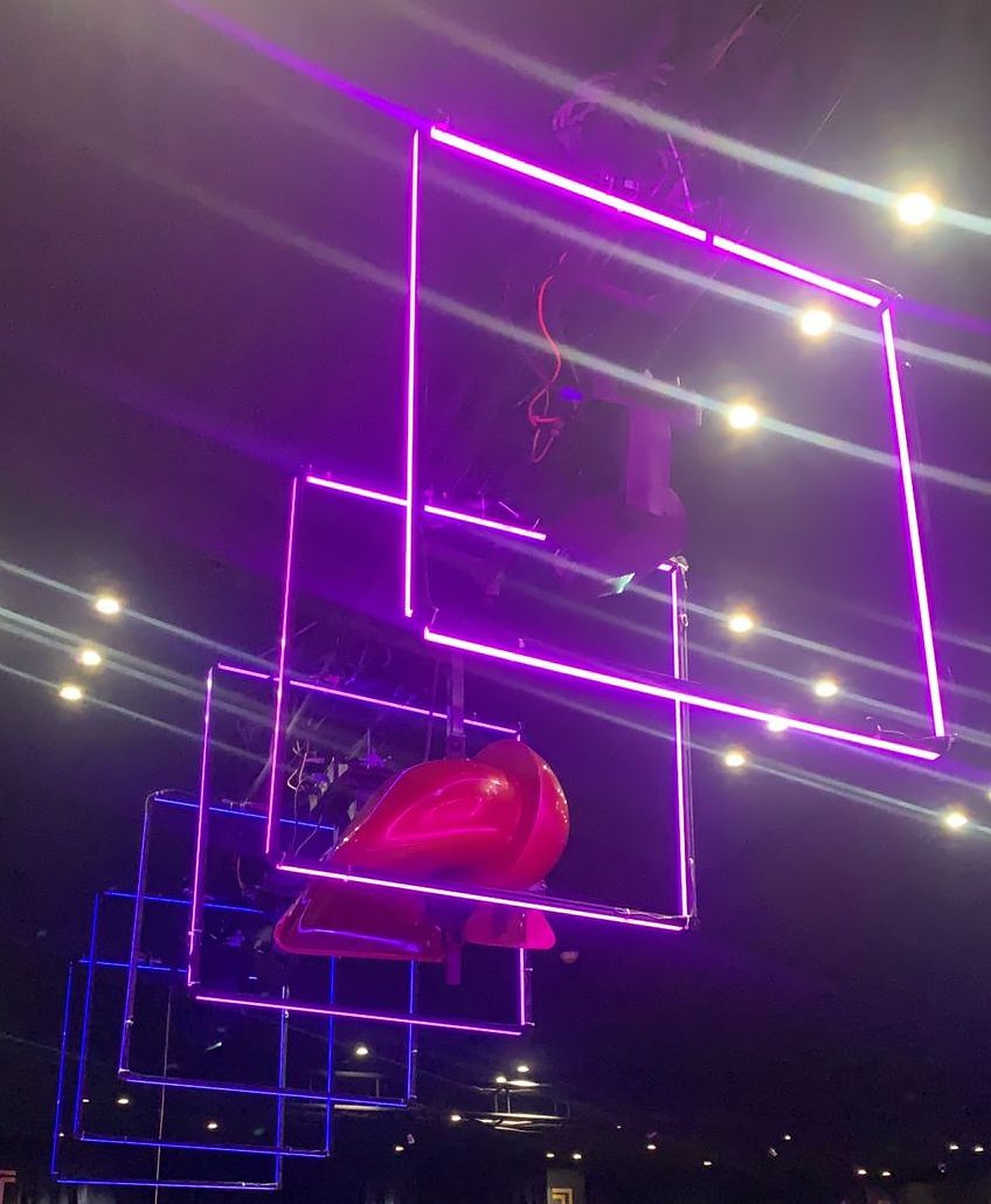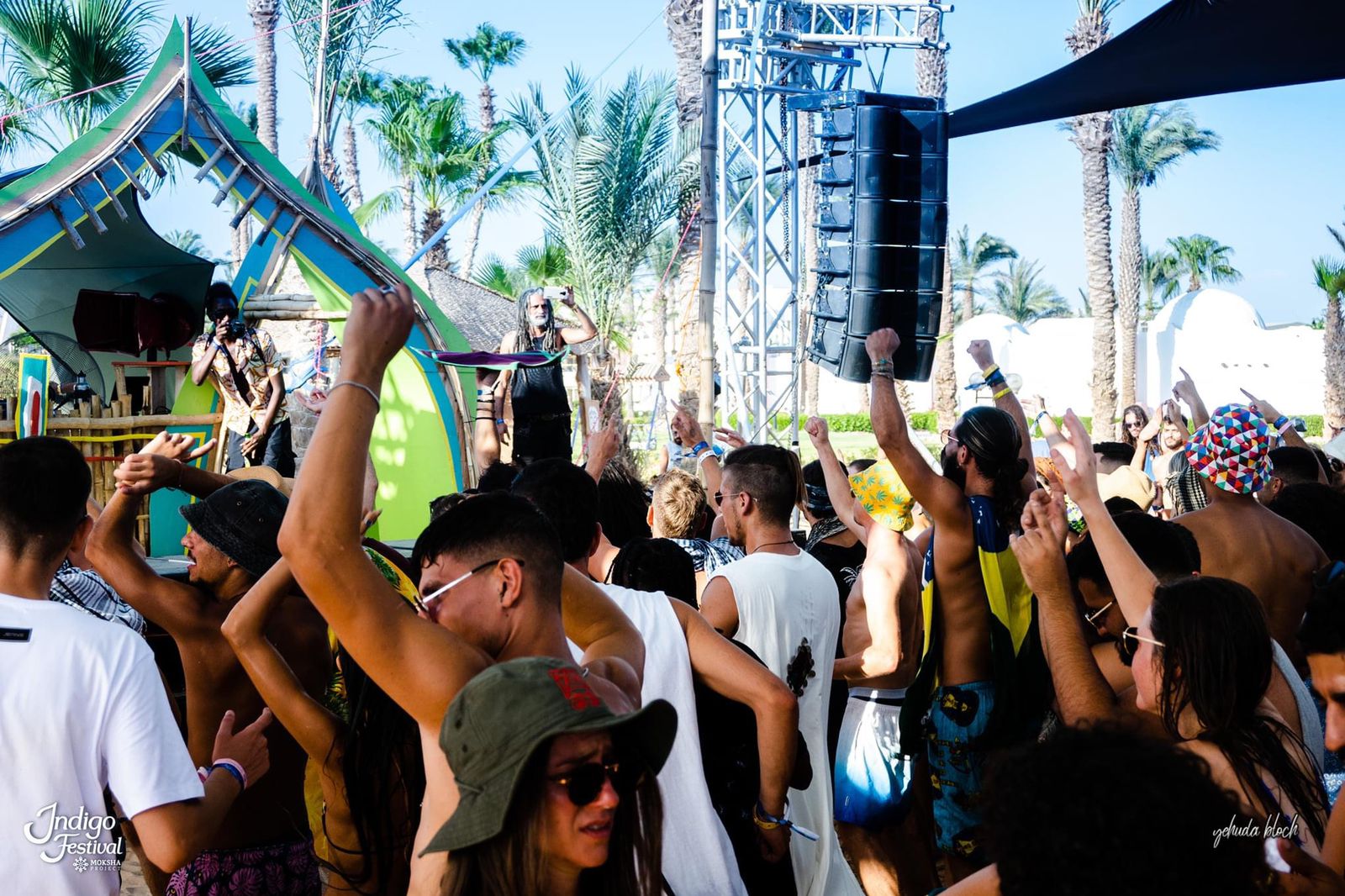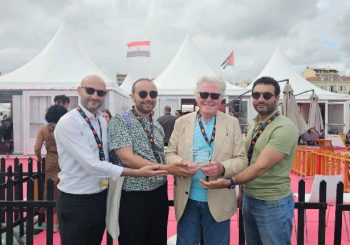Home to untouched tombs filled with treasures, majestic pyramids and monuments, and vast haunting deserts, Egypt is undoubtedly a land for musical inspiration and artistic experiences.
When American rock band The Grateful Dead visited Egypt in 1978, the American rock group claimed that they were to “harness the ancient energy” of the location, and “levitate” the Great Pyramid off the ground. “I went to this timeless place. The sounds from the stage – they could have been from any time. It was as if I went into eternity,” founding member Bob Weir said.
Around the same time in the 1970s, which witnessed the rise of psychedelic trance (psytrance) music, India grew as a popular destination for psytrance trance outdoor raves and festivals. Influenced by the character and color of the landscapes, dancers at the festivals describe the experience as “something sublime” and “touches the strings of the soul at the deepest level.”
The building blocks of psytrance music are euphoric melodies, emotion, and energy, and often vocals that can further heighten those emotions. It is usually described as an emotional experience that echoes the pace of your heartbeat. Since the early ’90s, it was pioneered by the likes of Paul Van Dyk, and Jam & Spoon, yet the genre has evolved through popular artists such as Armin van Buuren, Above & Beyond, and even expanded into psybient, which is focused on creating an ambient musical journey.
In 2019, the Indigo Festival, which is considered one of the most significant events in the psytrance music scene, changed its location to Sinai in Egypt, and took place at Coral Resort Nuweiba. Despite the gradual shift and harnessing of the genre in the country, Egypt is not on the list of the destinations hosting the best psychedelic trance festivals in the world, why?
Mahmoud Dabbous, a sound engineer, and DJ and producer Karim Akram are one of the early Egyptian pioneers in the psytrance music scene in Egypt. They were responsible for setting up the sound system for the Indigo Festival.
Dabbous believes that the scene will never grow in Egypt or have impact, because the music itself is too unusual for Egyptian audiences. “It’s like heavy metal, you either love it or you don’t, there’s no in-between, and Egyptians mostly love music they can vibe or dance to.”
Younger generations in Egypt today, however, are able to explore more genres or any era of music at any time because of the internet, which is different from how other generations grew up listening to music that was owned or played on the radio. Floating in the underground, niche music communities or tribes have been slowly building their own markets, but the challenges of going mainstream have prevented them from truly introducing a new genre to Egyptian audiences.
“The psytrance music scene in Egypt is probably around 60 to 100 people, and we usually do small gatherings on our own and produce music even if no one listens. Sometimes it gets very discouraging, because we know that it will never have an impact, but we just do it for the music,” Dabbous adds.
“We were a group of around 6 DJs in the beginning, but then because it often gets discouraging and disappointing, we broke up and now it is usually different groups doing their own different things. The most we can do is organize a large gathering every once in a while, but it is not often,” Dabbous adds.
But there are also other independent artists emerging in the scene.
View this post on Instagram
From his own bedroom during quarantine, DJ and producer Marwan Waleed dived into the’ extraterrestrial music’ scenes of psytrance by chance, after experimenting with a couple of melodies with his friend Mahmoud Dabbous. Throughout the years, Waleed was immersed into the Egyptian techno scene, but this was the very first time he came across psytrance. “My friend Dabbous is the first person to ever introduce me to what psytrance music actually is. He had a whole modular synth rack, which he used to create melodies using raw electricity and it’s truly magical.”
Fusing different rich sounds with drive and intensity, the two DJs led a whole musical experience from night to dawn, beginning with more dark and ambient sounds, and then rising with the sunrise to intensify the music.

“It was my very first experience, and I’m still trying to learn how to transition the tracks, because it’s extremely fast paced. You can’t mess up much and you have to switch tracks properly so conflicts don’t happen,” says Waleed.
The deeper he got into psytrance, the more he realized that psytrance needs its own atmosphere and environment to set the whole mood of the track.
“It’s a shame that the genre doesn’t have that big of a community here in Egypt, because we have a lot of aesthetic views, with the mountains and the sea and music. It’s a very, very niche community, and this is because the music scene in Egypt has unfortunately become too repetitive, and I’ve been hearing sort of the same arrangements, like the same techno track or same foundation,” he says.

“It’s all about the art. It’s not about how the scene is set, because you set your own scene and everyone comes in with their own experiences. If there will ever be more psytrance festivals in Egypt, it would be like paying homage to Egypt’s history and identity, and showcasing how we’re trying to introduce new music to sort of break the dynamic here in Egypt.”
The essence of psytrance’s beauty is in the sound structures and the ‘question and answer procedure’, as Waleed explains, which is necessary in creating a psytrance track. “You have to have some sort of fluctuation. It’s a whole question and answer procedure. So one sound is a question, and another sound is an answer, and then they fit together. And then as a producer, you have to listen to the same thing over and over. You can’t get bored. You have to be extremely patient, because if you rush it, you won’t get that sense of self accomplishment, or that you’re conquering that hill,” he adds.
Psytrance music has also been associated with a euphoric release, allowing people to feel free of their worries and stresses. “With psytrance music, and with trance in general, it is known to open up the subconscious. You just see what’s hidden. So whenever I was feeling down, I would pick up a beat that’s fast-paced I would relate with, then the music would just keep going with it, and I’d be like, yes, I relate to this sort of emotion.”
Music producers and critics globally believe that trance is not a fashion or a genre that suddenly goes viral and then dips down, but that it is here to stay for even decades. Its evolving nature, rich melodies, and meditative mood it puts people in has grown in popularity especially today, and many of these melodies are also timeless.
More youth have become interested in trance and the number of quality festivals has gone up, but the challenge is in making the genre develop its popularity in Egypt more organically so that it doesn’t feel ‘forced’, Waleed says. “What I’m seeing now is that people in Egypt have become more open to new music. People are open to listening to new things. But in order to truly break the scene, there has to be a lot more support from the community and we have to try to raise awareness and set the right environment.”
With not many record labels in Egypt supporting independent music artists in this music scene, Waleed was approached by his friend Marwan Fawzy, who launched the ‘Dummy Records’ during quarantine to push the electronic and psytrance music scene further in Egypt, which he has already begun by sharing his work on social media channels such as Youtube, Instagram and SoundCloud.
“Psytrance would be like a fresh start, a fresh taste of music in Egypt, and a new genre essentially means it’s easier for new talent to come in and tap into that market. I’ve always wanted to start something fresh and build my own foundation,” Waleed says.





Comments (0)